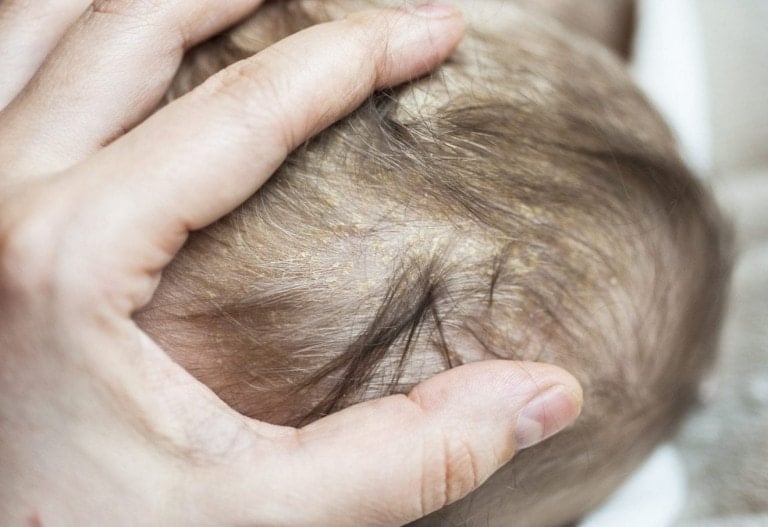Congratulations, it’s a boy! Do you want your baby boy circumcised or not? It’s one of the first questions you’ll get from the doctors and nurses in the hospital. To some parents, there’s no doubt what they want to do. Others are on the fence. And some parents cannot agree with each other. No matter the decision, though, circumcision is often a very controversial topic.
Circumcision: What You Should Know
Circumcision is the surgical removal of the foreskin of the penis.7 It’s been happening for hundreds of years for various religious, social, cultural, and medical reasons. If you decide to do it, it’s a brief procedure that usually takes five to 10 minutes.7,12
What Do the Current Societies Say About It?
While American medical societies (including the American Academy of Pediatrics, the American College of Obstetricians and Gynecologists, and the American Academy of Family Physicians) acknowledge the potential health benefits of circumcisions, including decreased urinary tract infections and sexually transmitted infections, none universally recommend the procedure.9
Given the potential risks and benefits and no official recommendation, deciding to circumcise is personal for each family. This article is not for or against the procedure but aims to present some common myths and facts about circumcision to help new parents decide what is best for their family.
Myths of Circumcision
Here are some common misconceptions about circumcision and why they’re incorrect:
Myth #1: Most Males Are Circumcised
This is a myth, as circumcision depends on many factors. In the past, up to 90% of all males born in the United States were circumcised, but from 1979 to 2010, the number dropped from 64.5% to 58.3%.13,14 Today, about 37-39% of males are circumcised globally.8 And it varies widely by region, demographics, and religion in the U.S., according to the CDC.14 In other countries, such as Europe, Asia, and South America, circumcisions are rare.15
Myth #2: Circumcisions Are Always Done for Religious Reasons
Yes, families often choose circumcision for religious reasons. Circumcision has been a part of Jewish and Muslim practice for centuries.16 However, some choose circumcision for health, cosmetic, or social reasons.17
Myth #3: Babies Do Not Experience Pain During the Procedure
It was previously believed that newborns don’t feel pain or eventually forget it, but this isn’t true. Newborns can, indeed, feel pain during this procedure.10,11 Circumcision used to be done with only non-pharmacologic forms of pain control, but this is no longer the case. Pain relief is now provided in topical anesthetics (like a numbing cream) or nerve blocks (injecting a numbing medicine directly into the area). Techniques such as sucking on a pacifier, giving a sugar-water solution, or positioning are other forms of pain relief.1,18
Facts of Circumcision
Here are some facts about circumcision that may help you make your decision:
- Circumcision is an elective procedure. It should only be for healthy and stable infants.9
- Circumcised males have lower urinary tract infection (UTI) rates than uncircumcised males. The rate of a UTI in uncircumcised boys is about 1%, while in circumcised boys, it’s about 0.13%.2
- Circumcised males have lower rates of some sexually transmitted infections than uncircumcised males, such as human immunodeficiency virus (HIV) and human papillomavirus (HPV).3,20
- Circumcised males have lower rates of inflammation of their penis because they have had their foreskin removed.4,20
- Like all surgical procedures, circumcision carries potential risks, such as excessive bleeding, infection, insufficient or excessive foreskin removal, and abnormal healing.21 However, complications are typically minor, and serious complications are infrequent.22,23 One study reported that the total complication rate of circumcision is 0%-16%.22
- If choosing circumcision, there are advantages to doing it in the newborn time versus waiting until the male is older.24 These advantages include a lower risk of complications and faster healing.22,24 Adverse events occur about four per 1,000 procedures for early infant circumcision, but that increases 10- to 20-fold in older boys.5
Uncertainties Regarding Circumcision
Some say it’s easier to maintain good hygiene for circumcised males than for uncircumcised males, while others say there’s no difference in cleanliness.7,25 Additionally, some say that circumcision decreases sensation in the penis, but there’s no good, definitive data on this.26
Male circumcision potentially reduces the risk of penile cancer, but there aren’t enough studies on this topic.27 However, the rate of penile cancer is very low at less than 1 per 100,000 males in the U.S. The studies showing risk reduction for circumcised males were done before widespread HPV vaccination, which has further decreased the incidence of cancer.6
Who Performs the Circumcision?
Depending on your state and hospital, an OB-GYN or a pediatrician usually performs the circumcision in the hospital after birth.9,29 If there’s any concern, the physician will first consult with a pediatric urologist.28 Once you leave the hospital, it is usually much more complicated to have the procedure done by a physician.29
Religious officials can also perform circumcision on a newborn. In Jewish tradition, a person called a “mohel” or “mohelet” performs circumcision during a “bris” ceremony when the baby boy is eight days old.19
Choosing whether to circumcise your newborn son feels like a big decision. And it is! This procedure has benefits and risks, but the choice is ultimately your family’s. Be sure to talk to a trusted healthcare professional about your concerns and questions regarding circumcision.
































